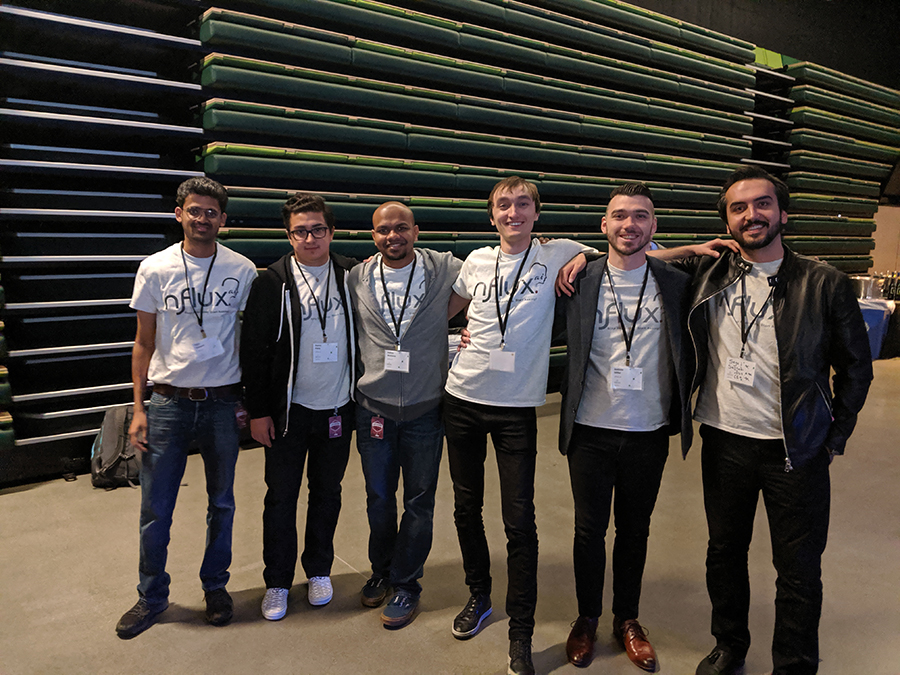CSUN Innovation Incubator Team Snags Spot in Amazon Alexa Accelerator

The nFlux team, including four CSUN alumni and co-founders, celebrates their placement in the Amazon Alexa Accelerator. Photo courtesy of Tim Tiemann.
The CSUN Innovation Incubator is celebrating the recent success of four of its own alumni, who were accepted into the Amazon Alexa Accelerator in Seattle.
The accelerator is a 13-week program that connects 10 startup companies to Amazon employees and mentors in the Seattle artificial intelligence (AI) community, and Amazon’s Techstars incubator network. According to the Amazon, the Alexa Accelerator, powered by Techstars gives early-stage startups the support they need to grow their network, gain traction, incorporate Alexa and engage with investors.
Four recent CSUN graduates in computer science and computer engineering co-founded nFlux AI — a video analytics platform that extracts unstructured data (such as video) and generates contextual insights that can be queried through natural language. According to the startup’s website, nFlux AI’s “Ask Engine” uses machine-learning services to contextually understand the content of a user’s data, enabling them to quickly make sense of large amounts of unstructured data.
Real-world uses for this AI technology, they said, could include: government intelligence surveillance, elderly care homes (“virtual nursing”), marketing and advertising, and auto-tagging in media. The Ask Engine can acquire information from multiple sources by simply asking a question.
CEO Seyed Sajjadi ’18 (Computer Engineering) launched nFlux AI with his co-founders and fellow Matadors Collin Miller ’18 (Computer Science), director of product; Anton Safarevich ’18 (Computer Science), director of product; and Danny Pena ’18 (Computer Science), software engineer. They created and refined the system through CSUN’s Innovation-Corps (I-Corps) program, which is designed to guide participants through a series of essential steps to move their startup forward.
“The CSUN Innovation Incubator is a fairly new element of a broader strategy for innovation and entrepreneurship across campus,” said Tim Tiemann, managing director of the CSUN Innovation Incubator. “It represents a physical space where participants receive expert mentorship and resources to develop solutions to solve societal or commercial problems.”
Housed in and supported by the David Nazarian College of Business and Economics, the incubator aims to help students convert their business ideas into marketable products and programs by granting them the opportunity to work alongside established professionals using “lean” startup methods, Tiemann said.
“The incubator is designed for CSUN students. Students take full academic loads and work substantial hours, so the incubator is designed to be accessible on nights and weekends,” he said. “That way, it does not conflict with students’ primary class or work responsibilities, and still provides a space and resources for them to work on their startup.”
Chandra Subramaniam, dean of the Nazarian College, sees the importance of entrepreneurship in business — not only today, but in the future. “Graduates entering the professional world need to be more entrepreneurially minded,” Subramaniam said. “I am proud to support the programs that provide CSUN students with the resources they need to help build their careers in entrepreneurship.”
For more information, visit https://www.csun.edu/busecon/csun-innovation-incubator.

 experience
experience